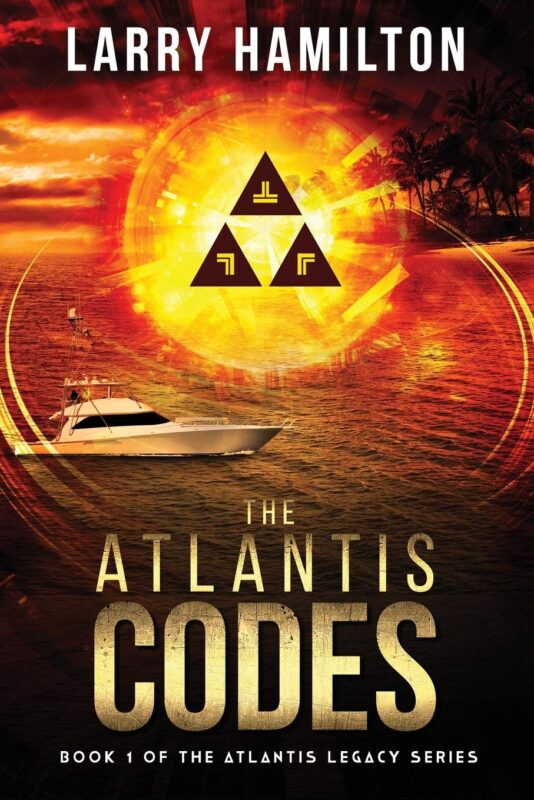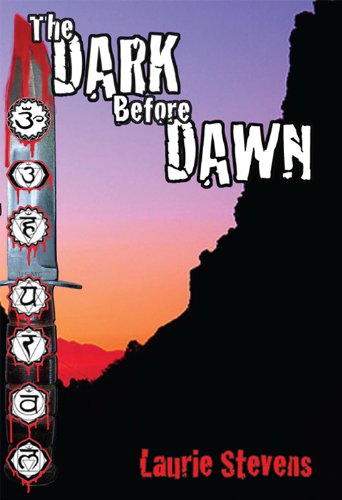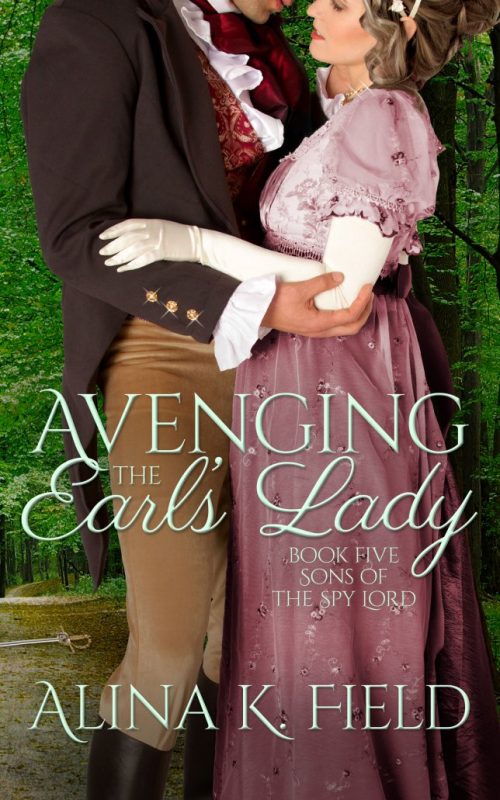What to Do with Unwanted Collaboration Offers
December 31, 2019 by The Extra Squeeze in category The Extra Squeeze by The Extra Squeeze Team tagged as annoying relatives, brother-in-laws, collaboration, deadlines
Dear Extra Squeeze Team,
My brother-in-law keeps sending me ideas for books.
He thinks I should write them and then share the profit with him (60% for him-40% for me—because he could crank them out if he just had the time, but he has a real job).
I’m so NOT interested.
I have tons of my own ideas and deadlines breathing down my neck. How to I get the jerk to leave me alone—besides skipping Thanksgiving and Christmas with the fam?

Rebecca Forster
USA Today Bestselling author of 35 books, including the Witness series and the new Finn O’Brien series.
Been there done that! High five! Here are my go-to favs.
A) My attorney has advised me not to listen to anyone else’s story ideas to protect the both of us.
B) MY real job – writing – just doesn’t leave time for anything else. AND IF THAT DOESN’T WORK…
C) I’d love to talk about it. The minimum fee for ghostwriting is $25,000 but you’re family. I’ll do it for $20,000. He should let you know when the check is in the mail.

Jenny Jensen
Developmental editor who has worked for twenty plus years with new and established authors of both fiction and non-fiction, traditional and indie.
60/40?! His ideas are mostly in the fantasy realm, right?
What’s a ‘cool idea’ and what’s a ‘premise’? There’s a world of difference between those two and the success of each depends on how well a writer spins them into a story. Your bro-in-law needs a reality check. As Thomas Mann said, “The task of a writer consists of being able to make something out of an idea.”
I’m not much help with family advice but perhaps you could counter-challenge him. Offer a 70/30 split – with you at 70% – if he can flesh out one of his brilliant ideas to include plot details, dramatic arc, characterizations, atmosphere and killer resolution; say, 25 or 35 pages of concise, workable outline. If you feel what he offers is something you can work with it’s a possibility you may ‘write it’.
Perhaps that might help him understand where the lion’s share of work is in creating a novel. And it’s possible he’ll even learn that the original idea often morphs beyond recognition once the world building begins. Otherwise, maybe you just smile sweetly, remind him the world is full of grand ideas – remember Google Glass? – and pass him the sweet potatoes.
H.O. Charles
Cover designer and author of the fantasy series, The Fireblade Array
Hahaha! Your brother-in-law sounds like the kind of person I cannot stand. There’s always one in the workplace (usually a boss) – the one who takes all the credit while the rest of us sweat and toil away. My advice is never allow yourself to be the swan’s feet unless you can guarantee recognition (advice you have already self-issued, anyway. Phew!). The best way to get him to leave you alone is to tell him someone else came up with a better story idea/better financial split, and that you are collaborating on a book with them instead.
Robin Blakely
PR/Business Development coach for writers and artists; CEO, Creative Center of America; member, Forbes Coaches Council.
Oh dear. Something is terribly awry here. Perhaps it would help to re-frame the situation and look at it again from other angles.
Angle One: Maybe your brother-in-law is not quite as big a jerk as you imagine. Maybe he knows you are highly creative. Maybe you are the most creative person he has ever met. Perhaps he realizes you could spin his big ideas into bankable gold….and truth be told, you probably could, if you wanted to. Let’s be grateful that he sees some of your amazing potential. But, why does he only offer you 40%? Maybe he fully expects you to negotiate with him and he has established some wiggle room for himself.
Hey, anything is possible…sometimes we jump to conclusions about people before we consider all the possibilities. And, then too, sometimes we know a jerk when we see one.
Angle Two: Maybe your brother-in-law is an even bigger jerk than you imagine. Seriously, if he low balls members of his own family in business deals, imagine how he treats the rest of the world. Not likely fabulous. Entitled and exploitative are never a good mix…they are toxic.
Soooo… what would I do if I were in your shoes?
I personally would consider skipping Thanksgiving and Christmas. It seems to me that you need some time and space. The situation you described is less about the brother-in-law and more about you. It sounds like you are feeling resentful and stressed, under-valued and pushed beyond your comfort level. Forget about the the brother-in-law (jerk or not), focus on putting yourself front and center. It seems to me that you need a chance to get ahead of all those deadlines breathing down your neck and focus on your own valuable ideas. Let your brother-in-law’s wife figure him out.

Ever wonder what industry professionals think about the issues that can really impact our careers? Each month The Extra Squeeze features a fresh topic related to books and publishing.
Amazon mover and shaker Rebecca Forster and her handpicked team of book professionals offer frank responses from the POV of each of their specialties — Writing, Editing, PR/Biz Development, and Cover Design.
Have you a question for The Extra Squeeze Team? Send them to us by using this handy link.
Heck Yeah! Writing Together Can Be….Fun?
August 15, 2011 by Rebecca Forster in category The Write Life by Rebecca Forster tagged as A Writer's Life, brother, collaboration, friends, mother, sister, sonI went to a movie I had been excited to see and was sorely disappointed. The story was thin, the plot holes deep and characterization shallow. When I saw four writers credited for the script, I realized why the movie never gelled. Odd slices of brilliance had flashed and fizzled in a jumble of visions, styles and pressure to perform.
Which leads me to the question of the day: How do creative partnerships thrive and turn out one saleable, seamless product? To answer that question, I joined Scott Gordon, a superior court judge and author, who partnered with Alex Abella, a seasoned nonfiction writer, to publish Shadow Enemies: Hitler’s Secret Plot against the United States and Debra L. Martin who teams with her brother, David W. Small, on the Rule of Otharia fantasy books. Then I threw in my two cents because my son and I partnered on two book-to-screen adaptation projects.
 The plan: Does there have to be one?
The plan: Does there have to be one?
Rebecca: Our plan was to adapt my books for the screen.* The project turned out to be more intricate than I ever imagined. While the skeleton of the story was there, a screenplay was completely different from a novel format. I had to lean on Alex’s expertise but first I had to acknowledge that, in this arena, he knew better than I did. I wrote the first draft then we sat for hours at the kitchen table going over every line, stage direction and piece of dialogue until we got it right.
Scott: We started from a solid foundation of factual material and a subject that intrigued both of us. Alex and I shared research responsibilities. Once we had all the information we could gather, we locked ourselves in the law library (with gallons of Diet Coke) and came out only when we had a very detailed outline. Alex used his amazing narrative skills to describe how Hitler’s spies were recruited, trained and landed in full Nazi uniforms on our shores. Because of my legal background, I picked up the story as it traveled through the court system, the presidential politics and military tribunal. We definitely played to our strengths.
 Deb: Luckily, my brother and I share a love of the fantasy genre and specifically of psi powers (i.e. telepathy, etc.) so we had a focus. The planning process was extensive and time consuming. We had to share our individual visions for the book and combine them so that we could build the characters and the fictional society from the ground up. For us planning and immersing ourselves in all the details were critical before we ever began to write.
Deb: Luckily, my brother and I share a love of the fantasy genre and specifically of psi powers (i.e. telepathy, etc.) so we had a focus. The planning process was extensive and time consuming. We had to share our individual visions for the book and combine them so that we could build the characters and the fictional society from the ground up. For us planning and immersing ourselves in all the details were critical before we ever began to write.
Execution: Two people/one voice
Rebecca: Because we were working in visuals, voice wasn’t as big a factor as it would have been for a novel. This project was about pacing. Our age difference really got in the way, not our talents. When we were working on our romantic comedy my sensibilities were from the Carey Grant era and his were aligned with The Hangover. With our psychological thriller I had already created a wonderful villain in the book and plot points that I thought were chilling. Alex kicked them up ten notches so those same points became gruesome. I can honestly say, he made both projects thrilling while he acknowledged my expertise in characterization and plot trajectory.
Scott: Because we had divided the subject matter so specifically, we each wrote our sections. When it was time to edit, we were extremely diligent. Through that process, there seemed to come a melding of both our voices resulting in what you called a ‘seamless third voice’.
Deb: We thought we could each write a chapter and then put them together. That plan was a disaster. Our success as co-authors came after much practice and creating detailed outlines not just for the book, but for each chapter. Still, we weren’t rigid and were always open to a chapter that was enhanced beyond the outline. I also continually edited as we went along. Then we both do a full edit, let the project sit and edit once more before publication. That smoothed out snags.
Rough Patches: Keeping the relationship sane & productive
Rebecca: If a mother and son could get divorced, we would have been after the first project. I would get upset because the source material was mine and I thought it was perfect. Alex, also thought it was perfect – for a different time and audience. The second time we worked together we laid out ground rules for resolving disagreements: stop working, reference sections of the source material that bothered us and offer alternative language until we found common ground.
Scott: What? Authors can have creative differences? Seriously, rough patches are a given when you have two authors and one project. I think our disagreements helped the creative process. We had to pull back, think of the project and be frank and direct. The process of hashing out our differences in viewpoints and style made the book richer.
Deb: Dave lives in California and I live in Boston, so when we got together, we worked extremely hard during our in-person visits. But there was one 14-hour editing session that disintegrated into raised voices and ego kicking. Suddenly, we started to laugh and called it a night. The next morning we came to a great compromise for the scene. Now we realize that you have to leave your ego at the door and work for the good of the story.
So, if you’re still thinking about teaming up, go for it. Before you do, make sure you’re a good match. Be civil, be honest, be clear about the purpose of the project, iron out the combined vision and recognize each other’s strengths and weaknesses. If you need a little inspiration pick up Shadow Enemies or Quest for Nobility in the Rule of Otharia series and see how two teams of pros turned out their impeccable books. And when my script becomes a movie, you’re all invited to join me and my partner for the premier – we’ll buy the popcorn.
*One script is in development, one is with producers and new books are always in the pipeline.
0 0 Read moreAffiliate Links
A Slice of Orange is an affiliate with some of the booksellers listed on this website, including Barnes & Nobel, Books A Million, iBooks, Kobo, and Smashwords. This means A Slice of Orange may earn a small advertising fee from sales made through the links used on this website. There are reminders of these affiliate links on the pages for individual books.
Search A Slice of Orange
Find a Column
Archives
Featured Books
Harlequin Special Edition March 2021 Box Set 2 of 2
Three books in one . . .
More info →THE ATLANTIS CODES
Trouble is coming…coming by land…coming by sea. Coming for you…and coming for me.
More info →THE DARK BEFORE DAWN
High in the Santa Monica Mountains near Los Angeles, grisly murders are taking place.
More info →ADVENGING THE EARL’S LADY
He’s the most irritating, inscrutable, insufferable lord in the kingdom.
More info →Newsletter
Contributing Authors
Search A Slice of Orange
Find a Column
Archives
Authors in the Bookstore
- A. E. Decker
- A. J. Scudiere
- A.J. Sidransky
- A.M. Roark
- Abby Collette
- Alanna Lucus
- Albert Marrin
- Alice Duncan
- Alina K. Field
- Alison Green Myers
- Andi Lawrencovna
- Andrew C Raiford
- Angela Pryce
- Aviva Vaughn
- Barbara Ankrum
- Bethlehem Writers Group, LLC
- Carol L. Wright
- Celeste Barclay
- Christina Alexandra
- Christopher D. Ochs
- Claire Davon
- Claire Naden
- Courtnee Turner Hoyle
- Courtney Annicchiarico
- D. Lieber
- Daniel V. Meier Jr.
- Debra Dixon
- Debra H. Goldstein
- Debra Holland
- Dee Ann Palmer
- Denise M. Colby
- Diane Benefiel
- Diane Sismour
- Dianna Sinovic
- DT Krippene
- E.B. Dawson
- Emilie Dallaire
- Emily Brightwell
- Emily PW Murphy
- Fae Rowen
- Faith L. Justice
- Frances Amati
- Geralyn Corcillo
- Glynnis Campbell
- Greg Jolley
- H. O. Charles
- Jaclyn Roché
- Jacqueline Diamond
- Janet Lynn and Will Zeilinger
- Jaya Mehta
- Jeannine Atkins
- Jeff Baird
- Jenna Barwin
- Jenne Kern
- Jennifer D. Bokal
- Jennifer Lyon
- Jerome W. McFadden
- Jill Piscitello
- Jina Bacarr
- Jo A. Hiestand
- Jodi Bogert
- Jolina Petersheim
- Jonathan Maberry
- Joy Allyson
- Judy Duarte
- Justin Murphy
- Justine Davis
- Kat Martin
- Kidd Wadsworth
- Kitty Bucholtz
- Kristy Tate
- Larry Deibert
- Larry Hamilton
- Laura Drake
- Laurie Stevens
- Leslie Knowles
- Li-Ying Lundquist
- Linda Carroll-Bradd
- Linda Lappin
- Linda McLaughlin
- Linda O. Johnston
- Lisa Preston
- Lolo Paige
- Loran Holt
- Lynette M. Burrows
- Lyssa Kay Adams
- Madeline Ash
- Margarita Engle
- Marguerite Quantaine
- Marianne H. Donley
- Mary Castillo
- Maureen Klovers
- Megan Haskell
- Melanie Waterbury
- Melisa Rivero
- Melissa Chambers
- Melodie Winawer
- Meriam Wilhelm
- Mikel J. Wilson
- Mindy Neff
- Monica McCabe
- Nancy Brashear
- Neetu Malik
- Nikki Prince
- Once Upon Anthologies
- Paula Gail Benson
- Penny Reid
- Peter J Barbour
- Priscilla Oliveras
- R. H. Kohno
- Rachel Hailey
- Ralph Hieb
- Ramcy Diek
- Ransom Stephens
- Rebecca Forster
- Renae Wrich
- Roxy Matthews
- Ryder Hunte Clancy
- Sally Paradysz
- Sheila Colón-Bagley
- Simone de Muñoz
- Sophie Barnes
- Susan Kaye Quinn
- Susan Lynn Meyer
- Susan Squires
- T. D. Fox
- Tara C. Allred
- Tara Lain
- Tari Lynn Jewett
- Terri Osburn
- Tracy Reed
- Vera Jane Cook
- Vicki Crum
- Writing Something Romantic
Affiliate Links
A Slice of Orange is an affiliate with some of the booksellers listed on this website, including Barnes & Nobel, Books A Million, iBooks, Kobo, and Smashwords. This means A Slice of Orange may earn a small advertising fee from sales made through the links used on this website. There are reminders of these affiliate links on the pages for individual books.










































